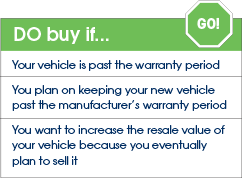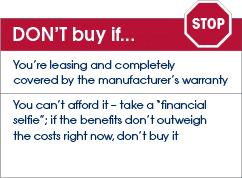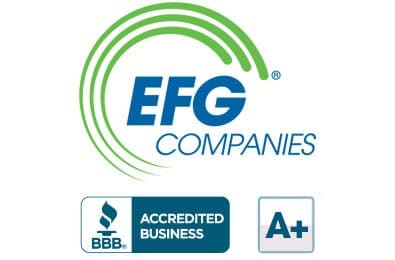Vehicle Service Contract: Your Easy Guide to BuyEver dealt with a large vehicle repair bill? Vehicle Service Contracts (VSC) can protect you from the high cost of mechanical breakdowns. Make sure you know the ins-and-outs of what to look for in a vehicle service contract with our Easy Guide to Buy. |

| Vehicles require repairs, especially the longer you keep them |
|
| Today’s vehicles are higher tech, and the cost to repair them is higher | |
| Just one covered repair could entirely cover the cost of the VSC |


| How long have they been in business? |
 |
Have you read their online customer reviews? |
| Have they been recognized in their industry with certifications and awards? |
 |
Do they have a good BBB rating? |
 |
Do they outsource the claims adjudication process or call center? |
 |
Do they genuinely care about your claim experience, (i.e. do they regularly ask for feedback on your experience and customer satisfaction)? |
| In the cancellation policy, do you have to pay out what’s owed on the policy? Is the refund pro-rated based on claims paid? | |
| Keep in mind, the higher the mileage on your vehicle, the higher the rates | |
| Remember, you get what you pay for – don’t look for the CHEAPEST policy |

|
|
||||||||||||||||||
 |
Vehicle service contracts are “bumper–to–bumper warranties.” |
|
|
 |
The manufacturer’s warranty is plenty of coverage – there’s no need for a vehicle service contract. |
|
|
 |
Shop around for the best price on a VSC – they all cover the same components. |
|
|
 |
Vehicle Service Contract (VSC) A written agreement between the consumer and the automotive service contract company that outlines its obligations to pay for covered mechanical breakdown repairs and other services for a stated period of time and miles. |
 |
Manufacturer’s Warranty A written guarantee of the vehicle’s mechanical performance and integrity for a stated period of time and miles. A warranty included in the purchase price of a vehicle by the selling dealership or manufacturer. |
 |
Exclusionary Coverage Provides the greatest coverage – any component or repair listed in a vehicle service contract is excluded from coverage. |
 |
Named/Listed Component Coverage Provides coverage for only the components specifically listed for the level of coverage indicated in the vehicle service contract purchased. |
| Pre-Existing Condition Mechanical problems present on your vehicle when you purchase the vehicle service contract. VSCs specifically exclude payment of any mechanical breakdown claim when a preexisting condition contributes to the failure of the component. |
 |
Waiting Period Most vehicle service contracts have a 30 days/1,000 miles waiting period from the odometer reading and sale date of the contract. This waiting period protects both the customer and the administrator, and helps to keep VSC prices competitive. The waiting period gives customers time to review the contract in detail, and it ensures the vehicle is running properly and that there are no existing failures or pre-existing conditions. |
 |
Administrator The company that adjudicates your claim and, if approved, pays the repair facility for repair work to your vehicle. The administrator works hand in hand with the repair facility to make sure your claim is handled properly. |
